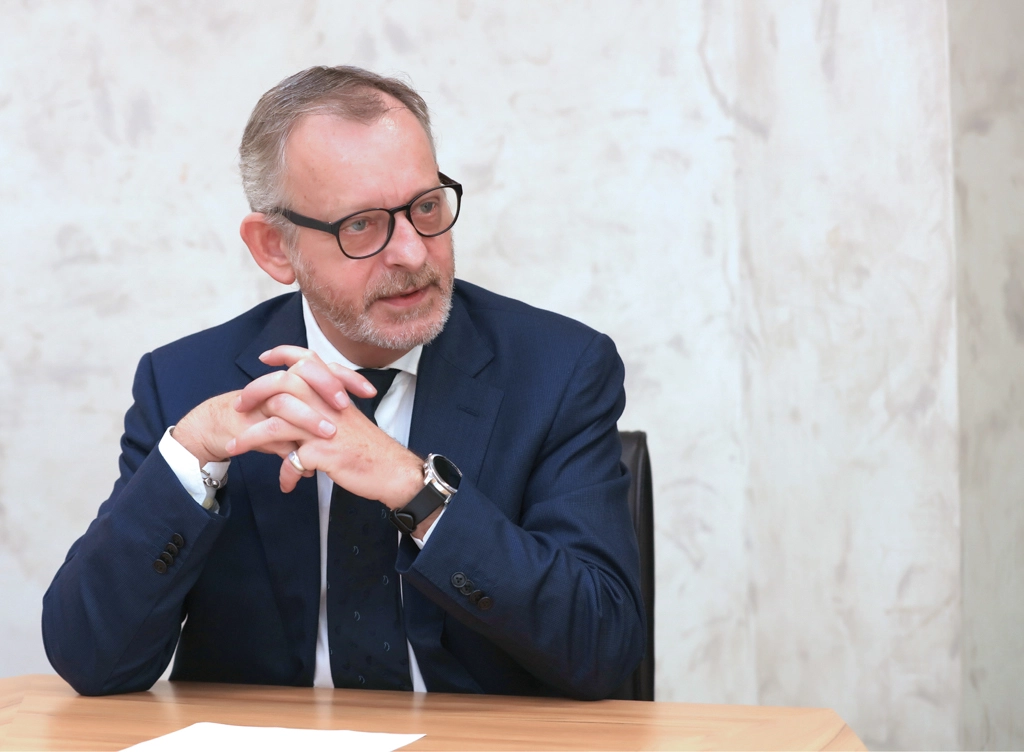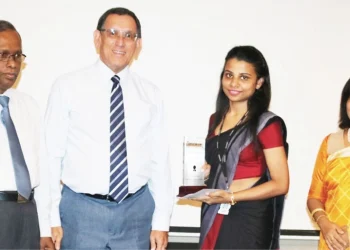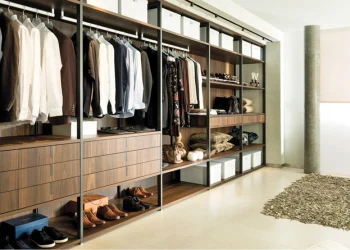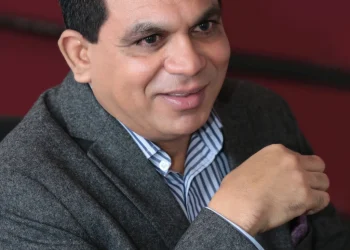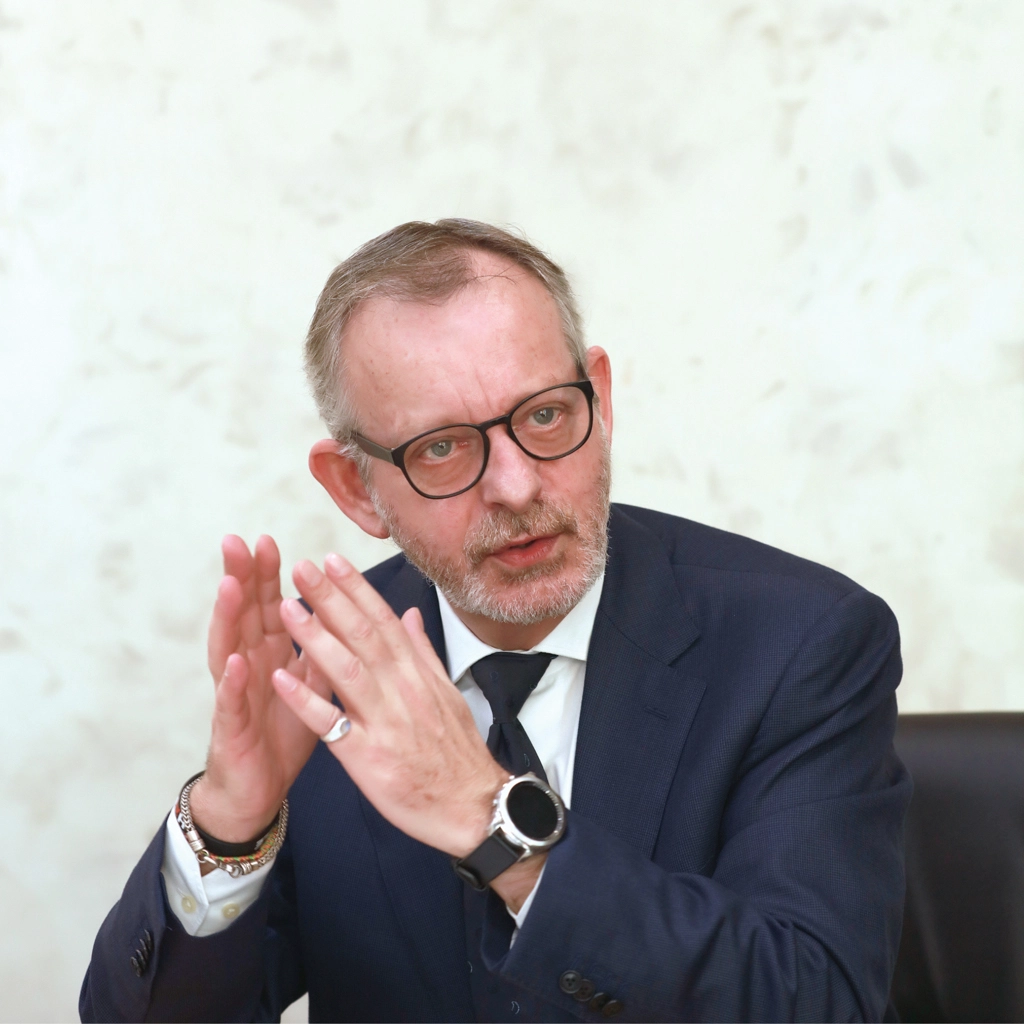
Häfele, the leading international manufacturer and supplier of furniture fittings and architectural hardware established its presence in Sri Lanka in 2009. Offering a holistic and cutting edge interior fittings product range, specially tailored to the South Asian market, Häfele is well-positioned for Sri Lanka’s construction boom. Currently, Asia accounts for 25 per cent of the brand’s market. Optimistic about the exciting times ahead, Jurgen Wolf, Managing Director, Häfele South Asia speaks about their presence in Sri Lanka and South Asia.
By Keshini de Silva
Photography Vishwathan Tharmakulasingham and Geeth Viduranga
Could you tell us about the Häfele brand and its core philosophy?
Häfele is not just a brand, it is a family. Founded in 1923 in Germany, the company started by supplying small woodworkers in the region. Then it grew into a national company, eventually a European company and finally a global enterprise. It is important to note that the company is still owned by the family; it is not publically traded. The granddaughter of one of the founders, Sibylle Thierer has been overseeing the operations of the company for the past 15 years.
This type of legacy comes with a certain set of values. Being a traditional German company coming from near Stuttgart, the family values permeate the entire company. Our employees are the most important aspect that is number one. I would dare say that they are almost more important than the customer, because if we don’t look after our own people we cannot service our customers either. Everything centres on that; how we treat each other, how we treat our customers and how we want to grow. It is a family philosophy rather than a shareholder driven philosophy that would say “Show me the money.” That’s not us. We have a long-term outlook that sets long-term goals, typically five years and beyond, on where we want to be.
Brands are perceived through the values behind it. Thus, being a German company, there are the usual features supporting Häfele such as quality and reliability. Beyond this, we are perceived as an innovator. We are more a trendsetter, than follower. We are also quite unique as no other company offers a diverse portfolio of products such as ours. We are really the “interior fittings one-stop-shop”. Häfele can meet literally every one of your interior requirements and that is what defines us, as well as our determination to always be at the cutting-edge of the market.
Häfele has been in Sri Lanka for over eight years. Why did you decide to enter the Sri Lankan market?
I visited Sri Lanka in 2007 to survey the market, and spoke to hardware shop owners; at the time, we too were retailing in Sri Lanka through these shops. What I found then was there was nothing in terms of sophistication for fittings offered in the country. Hence, we identified a tremendous opportunity to start something. We could have established ourselves in the market in two ways, either through an importer or by directly setting up operations in Sri Lanka, which is what we did eventually.
Häfele Can Meet Literally Every One Of Your Interior Requirements And That Is What Defines Us, As Well As Our Determination To Always Be At The Cutting-Edge Of The Market.
This was a big decision, one that we did not make lightly. However, we had not had good experiences when being represented by a partner, so we ultimately decided to set up Häfele operations in Sri Lanka. It has been a difficult journey. When we arrived in 2009 there was political and economic turbulence in the market. We were here before the end of the conflict, so in many ways, we took a big risk. It took some time for the country to settle down. Equally, we ourselves took a long time to settle in, especially in terms of finding the right people, getting structured and organised and understanding the market.
I feel that now we are at a point where the Häfele brand has already been established and we are very active in different channels in the market, particularly in the project channel. The boom in the Sri Lankan construction market drives us at the moment because we are very active in the project market. It is the number one area for us at present and we have very ambitious plans to expand on that in the future. Normally, project markets are quite cyclical, they go up and down. However, I think for the foreseeable future, barring any major economic or political shocks this growth will continue for some time.
It is interesting to see how the country is changing. I actually first visited Sri Lanka in 1994 for my honeymoon. Therefore when I look back at Sri Lanka then, or even in 2007-2008 and then consider the current situation, I can certainly see an enormous change. Colombo obviously expressing that transformation the strongest. The skyline of Colombo is changing dramatically and the plans the Government has for the country in terms of making it a major tourist and business centre in South Asia are quite ambitious. Exciting times are ahead.
While 90 per cent of business in Sri Lanka is initiated in Colombo, we are involved in projects across the country, predominantly in hospitality and residential projects. We have a big advantage over other brands because we are on the ground in Sri Lanka, making us very different from our competitors who have local representatives and as a result limited resources. We have invested in our operations in the country and already have a core team of 55. We have also built the backbone of the company in terms of logistics, technical as well as customer service teams.
The Skyline Of Colombo Is Changing Dramatically And The Plans The Government Has For The Country In Terms Of Making It A Major Tourist And Business Centre In South Asia Are Quite Ambitious. Exciting Times Are Ahead.
Could you tell us about the brand’s position in the market and its core differentiators?
The biggest differentiator is that we are a one-stop shop. When people ask me ‘Who is your competitor?’, I have a long list because we do everything. That makes us very different and gives us a different approach to the market. Firstly, we are catering to every channel that is there in the market, whether it is trade, project or industry, whether it is glass fittings, or lighting; we are everywhere. This makes it quite complex, but we are good at managing that complexity. We have been doing this for many years and I don’t think there is anybody else who can manage such complexity as smoothly as we do.
What are the products and solutions introduced in Sri Lanka and the region? How does the brand cater to the modern lifestyle?
We offer the same project range in Sri Lanka, that we provide anywhere else, maybe with slightly different focuses, but overall it is the same. Starting with furniture fittings – our traditional bread and butter product, then architectural hardware, which is the door hardware, including glass hardware and so on. We have of course kitchen fittings, a core competency of the company. Then we have a complete offering of everything except the furniture for your kitchen. You can come to us and we will even design the kitchen for you, recommend the different fittings, give you the drawings and everything else, but you will have to take it to one of the partners to have the furniture such as the boxes and shutters made. Nagold, our built-in kitchen appliances brand is a relatively recent addition to the range, but one of our most successful ones.
Innovate; we really try to be at the cutting-edge of what is happening with fittings. We are always on the lookout for the next big thing and we want to take it global straight away. Therefore, it is not just something that we launch only in Europe. It comes straight here too. In fact, presently the subsidiaries in Häfele Asia have been particularly innovative because we have younger and energetic teams, and as a result incredibly dynamic business operations.
We are the world leader in LED lighting for furniture, we stopped candescent lighting several years ago. When we introduced this in 2009, it was at a time when people did not understand why you needed lighting in furniture. Today, inside kitchen cupboards and wardrobes, we have light inside and direct lighting on worktops to see what we are doing.
We Are Always On The Lookout For The Next Big Thing And We Want To Take It Global Straight Away. Therefore, It Is Not Just Something That We Launch Only In Europe.
We moved into sanitary about five years ago, entering the last room in interiors we were not in. Now, considering what we do, Häfele starts at the main door. Then we move onto the living room, kitchen, bedroom and now the bathroom. In terms of the sanitary range, we have made a very careful selection of products. We wanted to maintain the Häfele quality, but try, if we could, enter the market at a more accessible price. It’s not easy to go into sanitary fittings because there is huge competition from German and US manufacturing giants. Venturing into that market was ‘gutsy’ to say the least. We feel that we can, and are currently having our first successes by getting involved in projects as a quality product that gives more value. That is what it is always about at the end of the day, the value proposition is very strong.
Overall, globally, we have 250,000 products in our range, which is a huge product range; but different markets have different product requirements and we strive to cater to them all.
Have Häfele products been tailored to suite the tropical climate and requirements in the country?
The Nagold appliance range was specifically designed for South Asia. When we looked at the opportunity of kitchen appliances, we found that European style appliances were being sold to South Asian customers despite the two types of cooking being completely different. We decided to make appliances that were right for this market and give our customers in Asia something that was essentially for them. For instance, kitchen hobs have longer lasting burners, brass burners mostly, so that you can cook on them for long periods of time; the suction of kitchen hoods is literally three times more than what it is in Europe as in Asia cooking is comparatively heavier with a larger quantity of frying going on as well.
Refrigerators need to be tropicalized because temperature and humidity is very high, unless you tropicalize fridges, it will start leaking. Overall, we have built that range around the requirements here in Asia and it has received huge success. I think we really hit the spot, where customers say, “Thank you, That’s for me”. Rather than them having to buy a European product that was not specifically tailored to their requirements.
What is the Häfele concept in terms of the design and training centres located across Sri Lanka?
The Design Centres are Häfele showrooms, which we conceptualized and manage ourselves. Our design centres are anywhere from 5,000 – 10,000 square feet. In future, we will also try and attract franchisees who will sell Häfele products exclusively.
We create our Design Centres to give our customers an environment where they can feel and experience the product. For that reason, we built them into an application so that they can move, feel and touch the products and make an educated buying decision. Fittings are difficult products to sell from a catalogue. Therefore, when you bring it into a context, then it makes a lot of sense. That’s really the way we are selling it all over the place, and we try to create environments where people can imagine their own homes. That’s the main thing.
The Nagold Appliance Range Was Specifically Designed For South Asia… I Think We Really Hit The Spot, Where Customers Say, “Thank You, That’s For Me”. Rather Than Them Having To Buy A European Product That Was Not Specifically Tailored To Their Requirements.
Training centres are a different story altogether because we are selling sophisticated products that need to be explained. I think we would be arrogant to believe that we can walk into any market and find that skill set. We have training centres throughout Asia to train customers on how to use our products as well as to train our own staff. That’s an ongoing effort. In South Asia, we have one in Moratuwa in Sri Lanka and another four in the major cities of India. Training takes place all year round.
Any thoughts on the Häfele expansion strategy in Sri Lanka?
We want to be the preferred interior fittings brand in Sri Lanka. You have to see where the opportunities are in Sri Lanka, and for us the number one, is projects. That is our main focus and more than 50 per cent of our revenue comes from projects. That will probably not change much in the next three years because there is so much going on in the construction field at the moment. We would very much like to be a part of that. We also have an edge, as we have so many things to offer a project; a huge product range supported by superior service.
As projects are cyclic, when they go down you need something else that keeps you in ‘food and accommodation’. That for us has always been trade. We are trying to build trade channels, and you will see us accelerate in this area, particularly with Nagold appliances this year, where we have big plans as we see a big market opportunity in Sri Lanka for appliances. I don’t believe that what is being offered to the customer is of a very strong value proposition. We have a lot more to offer them and will enter certain partnerships to reach a much wider audience.
Another future focus is the pantry market in Sri Lanka. We had several high-level discussions with major players in the market and I try to explain to them why there is no decent pantry manufacturer in Sri Lanka. It has become a very successful market for imported kitchens because there is no local competition; and we need to get that rolling. To me it is unacceptable that a country of this size doesn’t have its own kitchen industry. We want to partner with and encourage Sri Lankan manufacturers, and we are willing to bring our know-how to the table to enable them. From a business point of view, we too depend on local partners, as imported kitchens come with fittings and there is no opportunity for us in that area. We need to build a Sri Lankan pantry industry that can compete on a quality and value levels.
That is an area my team and I are quite keen on setting up in the next couple of years.
Asia Is Gaining In Importance Year On Year. In My Opinion, This Is Where The Music Is Going To Be Playing For Several Generations. Because, It’s Young, Fresh, Dynamic, Hungry, All Those Things Where You May Not Find In Europe Anymore.
Thoughts on sustainability in the field?
If you take it seriously and do it seriously, it makes a lot of sense. There is no doubt that we need to protect our planet and ensure that in everything we do, we are not damaging our habitat. I am however rather skeptical about the overuse of the terms “green” and “sustainable” as many today use these words as a marketing tool and to sell rather than actually protecting the environment. Sustainability really starts at home in how you generate your electricity, reduce and dispose of waste and how you save energy. As you may know, Germany is in the forefront in terms of that particular topic, so everyone is very aware of that.
Could you tell us about yourself and your role?
I was born in Düsseldorf, Germany and left the country relatively young, at the age of 25, to work overseas. I have gone through several phases. I worked in Baghdad in Iraq during the Iraq-Iran war and then moved on to the Gulf where I was in Dubai. Subsequently I had a stint in Singapore, then moved to North America and ultimately joined Häfele to set up their business in South Asia in 2001. I am firmly anchored in Asia now both personally and professionally.
In terms of my role at Häfele, I am the chief strategist, visionary and mentor. Apart from setting the overall direction of the company, where we want to head and where we want to be, my main job is managing people; getting the right teams together, motivate them and ensure they are given the right tools to their job. At my age you have to do that because the people you employ are typically much sharper than you are. I see that my job is to support and enable, and to let them do all the wonderful things that they are doing.
Your outlook on Asia?
Regardless of Brexit and other phenomena in the West, if you take a look at the holistic global picture, Asia is gaining in importance year on year. In my opinion, this is where the music is going to be playing for several generations. Because, it’s young, fresh, dynamic, hungry, all those things where you may not find in Europe anymore, where it is settled, comfortable and maybe a little too comfortable. I see the difference in the work ethic when I go back. There is a completely different drive here in Asia, and that is very refreshing to see. It certainly keeps me on my toes as well.
Asia already accounts for a quarter of our total sales, and it is growing year on year. Soon it will account for one-third of our total sales. We have a very strong presence as, of our 38 subsidiaries across the world, 13 are in Asia. Therefore, we have a subsidiary in literally every Asian country, the focus is very strong and our growth is very strong. In Europe, whereas the growth is two to three per cent; in Asia it’s 20 per cent or more, an entirely different scenario. We are disappointed when we only grow 20 per cent; when we say we had a bad year, the Europeans are stunned. Completely different dynamics and it will be much more exciting in Asia for a long time.
